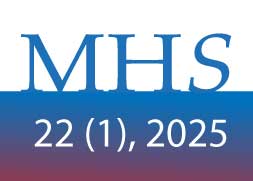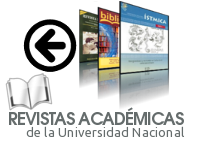Effects of plyometric training on sports performance in team sports. A literature reviews.
DOI:
https://doi.org/10.15359/22.1.17522Keywords:
plyometric exercise, explosive force, vertical jump, team sportsAbstract
ABSTRACT
Objective: Analyze the types of plyometric evaluation and training methodologies most used in the team sports of soccer, basketball and volleyball that are reported in recent literature. Methodology: Seventeen studies met the inclusion criteria; eight in volleyball, six in soccer and three in basketball. Results: Significant effects (p > 0.05) were reported in jumping tests Counter Movement Jump, Squat Jump, Abalakov, Drop Jump, as well as speed tests at different distances (15-40 m). The studies report significant effects after 6-8 weeks of training, with two sessions per week. There were no significant differences between men and women. Conclusion: Plyometric training produces improvements in jump height and short-duration speed. It is recommended to carry out studies in which the results obtained can be applied, in addition to being able to combine plyometric training with strength training, or to perform it on different types of floors.
References
Abdelkrim, N., El Fazaa, S. & El Ati, K. (2007). Time-motion analysis and physiological data of elite under-19-year-old basketball players during competition. British Journal of Sports Medicine, 7(2), 69-75. https://doi.org/10.1136/bjsm.2006.032318
Ahmadi, M., Nobari, H., Ramírez-Campillo, R., Pérez, J. A., Lima, A. & Martínez, A. (2021). Effects of Plyometric Jump Training in Sand or Rigid Surface on Jump-Related Biomechanical Variables and Physical Fitness in Female Volleyball Players. International Journal of Environmental Research and Public Health, 18(24), 13093. https://doi.org/10.3390/ijerph182413093
Alfaro-Jiménez, D., Salicetti-Fonseca, A. & Jiménez-Díaz, J. (2018). Efecto del entrenamiento pliométrico en la fuerza explosiva en deportes colectivos: un metaanálisis. Pensar en movimiento: Revista de Ciencias del ejercicio y la Salud, 16(1), 1-35. https://doi.org/10.15517/pensarmov.v16i1.27752
Asadi, A. & Arazi, H. (2012). Efectos del entrenamiento pliométrico de alta intensidad sobre el equilibrio dinámico, la agilidad, el salto vertical y el rendimiento de sprint en jugadores jóvenes de básquetbol masculino. Journal of Sports and Health Research, 4(1), 35-44. http://www.journalshr.com/papers/Vol%204_N%201/V04_1_4.pdf
Bangsbo, J., Mohr, M. & Krustrup, P. (2006). Physical and metabolic demands of training and match-play in the elite football player. Journal of Sports Sciences, 24(7), 665-674. https://doi.org/10.1080/02640410500482529
Barahona, G., Huerta, A. & Galdames, S. (2019). Influencia de la pliometría basada en un entrenamiento intervalado de alta intensidad sobre la altura de salto y pico de potencia en futbolistas sub-17. Revista de Educación Física y Ciencia, 21(2), 1-11. https://doi.org/10.24215/23142561e080
Barquero-Jiménez, José Francisco & Salazar-Rojas, Walter. (2020). Efecto agudo de los entrenamientos de fuerza, velocidad, pliometría y velocidad contra resistencia en la carrera de velocidad. Pensar en Movimiento: Revista de ciencias del ejercicio y la salud, 18(2), 4-24. https://doi.org/10.15517/pensarmov.v18i2.42503
Beato, M., Bianchi, M., Coratella, G., Merlini, M. & Druts, B. (2018). Effects of plyometric and directional training on speed and jump performance in elite youth soccer players. Journal of Strength and Conditioning Research, 32(2), 289-296. https://doi.org/10.1519/jsc.0000000000002371
Berton, R., Lixandrao, M., Pinto e Silva, C. & Tricoli, V. (2018). Effects of weightlifting exercise, traditional resistance and plyometric training on countermovement jump performance: a meta-analysis. Journal of Sports Sciences, 36(18), 2038-2044. https://doi.org/10.1080/02640414.2018.1434746
Bompa, T. (2004). Entrenamiento de la potencia aplicada a los deportes: la pliometría para el desarrollo de la máxima potencia. Inde.
Brocherie, F., Girard, O., Faiss, R. & Millet, G. (2015). High-intensity intermittent training in hypoxia: A double-blinded, placebo-cotrolled field study in youth football players. Journal of Strength and Conditioning Research, 29(1), 226-237. https://doi.org/10.1519/jsc.0000000000000590
Ceroni, D., Martin, X., Delhumeau, C. & Farpour-Lambert, N. (2012). Bilateral and gender differences during singlle-legged vertical jump performance in healthy teenagers. Journal of Strength and Conditioning Research, 26(2), 452-457. https://doi.org/10.1519/jsc.0b013e31822600c9
Chelly, M., Ghenem, M., Abid, K., Hermassi, S., Tbka, Z. & Shephard, R. (2010). Effects of in season short-term Plyometric training program on leg power, jump and sprint performance of soccer players. Journal of Strength and Conditioning Research, 24(10), 2670-2676. https://doi.org/10.1519/jsc.0b013e3181e2728f
Chelly, M., Hermassi, S., Aouadi, R. & Shephard, R. (2014). Effects of 8-weeks in season plyometric training on upper and lower limb performance of elite adolescent handball players. Journal of Strength and Conditioning Research, 28(5), 1401-1410. https://doi.org/10.1519/jsc.0000000000000279
Delgado, P., Osorio, A., Mancilla, R. & Jerez, D. (2011). Análisis del desarrollo de la fuerza reactiva y saltabilidad, en basquetbolistas que realizan un programa de entrenamiento pliométrico. Revista Motricidad y Persona, (10), 33-44. https://dialnet.unirioja.es/servlet/articulo?codigo=4027596
Diallo, O., Dore, E., Duche, P. & Van Praagh, E. (2001). Effects of plyometric training followed by a reduced training programme on physical performance in prepubescent soccer players. Journal of Sports Medicene and physical Fitness, 41(3), 342-350. https://europepmc.org/article/med/11533565
Faccioni, A. (2001). Metodología del entrenamiento pliométrico. Revista Internacional de Medicina y Ciencias de la Actividad Física y el Deporte, 3(12), 190-204.
Fernández, G., de Freitas, C., Álvarez, H., Melo de Oliveira, S., dos Santos, W., Vaz da Silva, P. & Pinheiro P. (2020). The effect of plyometric training on vertical jump performance in young basketball athletes. Journal of Physical Education, 31(1), e-3175. https://doi.org/10.4025/jphyseduc.v31i1.3175
Flores, A., Araya, S., Guzmán, R. & Montecinos, R. (2015). Efecto de un programa de entrenamiento pliométrico sobre la biomecánica de salto en mujeres voleibolistas juveniles. Revista Ciencias de la Actividad Física Universidad Católica del Maule, (16), 37-44. https://www.redalyc.org/pdf/5256/525652730004.pdf
García López, D., Herrero, J., Bresciani, G. & Fernández, J. (2005). Análisis de las adaptaciones inducidas por cuatro semanas de entrenamiento pliométrico. Revista Internacional de Medicina y Ciencias de la Actividad Física, 5(17), 68-76. https://www.redalyc.org/articulo.oa?id=54221999006
García-López, D., Herrero, J., DePaz, J. (2003). Metodología del entrenamiento pliométrico. Revista Internacional de Medicina y Ciencias de la Actividad Física y del Deporte, 3(12), 190-204. http://cdeporte.rediris.es/revista/revista12/artpliometria.pdf
González, J., González-Muñoz, M., Alonso-Arroyo, A., & Aleixandre-Benavent, R. (2013). Fundamentos para la realización de la revisión bibliográfica en investigación socio-sanitaria. Enfermería en Cardiología, 10-17. https://enfermeriaencardiologia.com/wp-content/uploads/60_01.pdf
Guirao-Goris, J. (2015). Utilidad y tipos de revisión de literatura. Revista de Enfermería, 9(2). https://dx.doi.org/10.4321/S1988-348X2015000200002
Haro, E. & Cerón, J. (2019). La pliometría y su incidencia en la velocidad y velocidad-fuerza en jugadoras de futbol. Revista Cubana de Investigaciones Biomédicas, 38(2), 182-194. https://pesquisa.bvsalud.org/portal/resource/pt/biblio-1093399
Hernández, R., Fernández, C. & Baptista, P. (2010). Metodología de la investigación. Mcgraw-Hill/Interamericana Editores.
Hernández, Y. & García J. (2012). Efectos de un entrenamiento específico de potencia aplicado a futbolistas juveniles para la mejora de la velocidad inicial. Motricidad. European Journal of Human Movement, 125-144. https://www.redalyc.org/pdf/2742/274229586002.pdf
Herrera, G., Moreno, C. (2014). La preparación física en los deportes colectivos. Revista Cubana de Medicina del Deporte y la Cultura Física, 9(1), 1-11. http://www.revmedep.sld.cu/index.php/medep/article/view/172/186
Hoyo, M., Gonzalo, O., Sanudo, B., Carrascal, C., Plaza, J., Camacho, F. & Otero, C. (2016). Comparative effects of in-season full back squat, resisted sprint training, and plyometric training on explosive performance in U-19 elite soccer players. Journal of Strength and Conditioning Research, 30(2), 369-377. https://doi.org/10.1519/JSC.0000000000001094.
Idrizovic, K., Sekulic, D., Uljevic, O., Spasic, M., Gjinovci, B., Joao, P. & Sattler, T. (2018). The effects of 3-month skill-based and plyometric conditioning of fitness parameters in junior female volleyball players. Pediatric Exercise and Science, 30(3), 353-363. https://doi.org/10.1123/pes.2017-0178.
Ingle, L., Stephenson, A. & Sanderock, G. (2016). Physical activity profiles and selected muscular fitness variables in english schoolchildren: A north-south divide? European Journal of Sports Science. European Journal of Sports Science, 16(8), 1187-1196. https://doi.org/10.1080/17461391.2016.1183714
Izquierdo, M., Redondo, J., Olivera, L., López, L., Marcolin, E. & Sedano, S. (2015). Efecto de dos tipos de entrenamiento complejo en fuerza máxima y potencia en jugadores jóvenes de deportes colectivos. Revista Brasileira de Prescriçao e Fisiologia do exercício, 9(53), 290-302. https://go.gale.com/ps/i.do?id=GALE%7CA510550596&sid=googleScholar&v=2.1&it=r&linkaccess=abs&issn=19819900&p=IFME&sw=w&userGroupName=anon%7Ebca48641&aty=open-web-entry
Jarvis, M., Graham-Smith, P. & Comfort, P. (2016). Un enfoque metodológico para cuantificar la intensidad pliométrica. Journal Strength and Conditioning Research, 30, 2522-2532. https://doi.org/10.1519/jsc.0000000000000518
Loturco, I., Pereira, L., Kobal, R., Zanetti, V., Kitamura, K., Abad, C. & Nakamura, F. (2015). Transference effect of vertical and horizontal plyometrics on sprint performance of high-level U-20 soccer players. Journal of Sports Sciences, 33(20), 2182-2191. https://doi.org/10.1080/02640414.2015.1081394.
Lloyd, R., Faigenbaum, A., Stone, M., Oliver, J., Jeffreys, I., Moody, J. & Herrington, L. (2014). Declaración de posición sobre el entrenamiento de resistencia juvenil: el Consenso Internacional de 2014. British Journal of Sports Medicine, 48(7), 498-505. https://g-se.com/declaracion-de-posicion-sobre-el-entrenamiento-de-la-fuerza-en-ninos-y-adolescentes-consenso-internacional-2014-bp-U57cfb26d71683
Machi, L. & McEvoy, B. (2012). The Literature Review: Six Steps to Success. Second Edition. Corwin.
Markovic, G. (2007). Does plyometric training improve vertical jump height? A meta-analytical review. British Journal of Sports Medicina, 41(6), 349-355. https://doi.org/10.1136/bjsm.2007.035113.
Markovic, G. & Mikulic, P. (2010). Neuro-musculoskeletal and performance adaptations to lower-extremity plyometric training. Sports Medicine Journal, 859-895. https://doi.org/10.2165/11318370-000000000-00000.
McCormick, B., Hannon, J., Newton, M., Schultz, B., Detting, N. & Young, W. (2016). The Effects of Frontal- and Sagittal-Plane Plyometrics on Change-of-Direction Speed and Power in Adolescent Female Basketball Players. The International Journal of Sports Physiology and Performance, 11(1), 102-107. https://doi.org/10.1123/ijspp.2015-0058
Mckay, H., Tsang, G., Heinones, A., MacKelvie, K., Sanderson, D. & Khan, K. (2005). Ground reaction forces associated with an effective elementary school based jumping intervention. British Journal of Sports Medicine, 39(1), 10-14. https://doi.org/10.1136/bjsm.2003.008615
Meylan, C. & Malatesta, D. (2009). Effects of in season-plyometric training within soccer practice on explosive actions of young players. The Journal of Strength & Conditioning Research, 23(9)2605-2613. https://doi.org/10.1519/JSC.0b013e3181b1f330.
Núñez, V. M., Poblador, C. L. & Ramírez, J. M. (2016). Entrenamiento muscular a través de tecnología isoinercial en un jugador de fútbol profesional intervenido de rotura total de LCA. Estudio de caso. Retos: Nuevas Perspectivas de Educación Física, Deporte y Recreación, 29, 166-170. https://doi.org/10.47197/retos.v0i29.41315
Pérez-Gómez, J. & Calbet, J. (2013). Training methods to improve vertical jump performance. Jounal of Sports Medicine and Fisioterapy Fitness, 53, 339-357. https://www.researchgate.net/publication/245538463_Training_methods_to_improve_vertical_jump_performance
Pérez, J. (2012). Efecto de la pliometría en la capacidad de salto en jugadores de voleibol categoría junior. Revista Efdeportes, (174), 1-1. https://www.efdeportes.com/efd174/la-pliometria-en-la-capacidad-del-salto-de-voleibol.htm
Ramírez-Campillo, R., García, F., García, A., Yanci, J., Gentil, P., Chaabene, H. & Granacher, U. (2018). Effects of Different Plyometric Training Frequencies on Components of Physical Fitness in Amateur Female Soccer Players. Journal Frontier in Physiology, 9, 1-4. https://doi.org/10.3389/fphys.2018.00934
Ramírez-Campillo, R. Henríquez, R., Burgos, C., Andrade, D., Zapata, D., Martínez, C., Álvarez, C., Báez, E., Castro, M., Penailillo, L. & Izquierdo, M. (2015). Effect of Progressive Volume-Based Overload During Plyometric Training on Explosive and Endurance Performance in Young Soccer Players. Journal of Strength and Conditioning Research, 29(7), 1884-1893. https://doi.org/10.1519/jsc.0000000000000836
Roussos, A. (2011). Preparación de una revisión bibliográfica para su publicación cuando un solo artículo nos habla de muchos trabajos. Reportes de investigación, 1, 1-7. http://repositorio.ub.edu.ar/handle/123456789/2769
Ruivo, R., Pinheiro, V. & Ruivo, J. (2018). Para prevención de Lesiones en el Fútbol: Base Científica y Aplicabilidad. Revista de Medicina Deportiva Informa, 9(2), 16-19. https://doi.org/10.23911/Vol.9Iss.2Prevencao_lesao
Saez de Villareal, E., Kellis, E., Kraemer, W. & Izquierdo, M. (2009). Determining variables of plyometric training for improving vertical jump height performance: a meta-analysis. Journal of strength & e conditioning research, 23(2), 495-506. https://doi.org/10.1519/jsc.0b013e318196b7c6
Saez, E. (2004). Variables determinantes en el salto vertical. EFdeportes, 10(70), 1-10. https://www.efdeportes.com/efd70/salto.htm
Sánchez-Moreno, M., García-Asencio, C., González-Badillo, J. & Díaz-Cueli, D. (2018). Strength and vertical jump performance changes in elite male volleyball players during the season. Retos, (34), 291-294. https://doi.org/10.47197/retos.v0i34.65898
Sánchez, A., Harrison, A. & Floria, P. (2021). Effects of Plyometric Vs. Combined Plyometric Training on Vertical Jump Biomechanics in Female Basketball Players. Journal of Human Kinetics, 77, 25-35. https://doi.org/10.2478/hukin-2021-0009
Santiago, A., Granados, C., Quintela, K. & Yanci, J. (2015). Diferencias entre jugadores de fútbol de distintas edades en la capacidad de aceleración, cambio de dirección y salto. Cultura, Ciencia y Deporte, 10, 135.143. https://doi.org/10.12800/ccd.v10i29.551
Spurs, R., Murohy, A. & Watsford, M. (2003). The effect of plyometric training on distance running performance. European Journal of Applied Physiology, 89(1), 1-7. https://doi.org/10.1007/s00421-002-0741-y
Stanganelli, L., Dourado, A., Oncken, P., Mancan, S. & Costa, S. (2008). Adaptations on jump capacity in brazilian volleyball players prior to the under-19 world championship. Journal Strength and Conditioning Research, 22(3), 741-749. https://doi.org/10.1519/jsc.0b013e31816a5c4c
Teo, S., Newton, M., Newton, R., Dempsey, A. & Fairchild, T. (2016). Comparing the effectiveness of a short-term vertical jump vs weightlifting program on athletic power development. Journal of Strength and Conditioning Research, 30(10), 2741-2748. https://doi.org/10.1519/jsc.0000000000001379
Thomas, K., French, D. & Hayes, P. (2009). The effect of two plyometric training techniques on muscular power and agility in youth soccer players. The Journal of Strength & Conditioning Research, 23(1), 332-335. https://doi.org/10.1519/jsc.0b013e318183a01a
Véliz, C., Maureira, F., Valenzuela, L. & Flores, E. (2017). Efecto de una sesión de entrenamiento de saltos y velocidad sobre la fuerza explosiva en jugadoras de voleibol del estadio mayor de Santiago de Chile. EmásF, Revista Digital de Educación Física, (49), 99-106. https://dialnet.unirioja.es/descarga/articulo/6195139.pdf
Vera, O. (2009). Artículos de revisión. Cómo escribir artículos de revisión. Revista Médica la Paz, 15(1), 63-69. http://www.scielo.org.bo/pdf/rmcmlp/v15n1/v15n1_a10.pdf
Vilela, G., Caniuqueo, A., Ramírez-Campillo, R., Hernández-Mosqueira, C. & Fernandes da Silva, S. (2021). Effects of plyometric training on explosive strength in pubescent girls volleyball players. Retos, (40), 41-46. https://doi.org/10.47197/retos.v1i40.77666
Vilela, G. & Silva, S. (2017). Efeitos do treinamento pliométrico na força explosiva e potência de meninas púberes praticantes de voleibol. Revista Brasileira de Ciencia & Movimiento, 40, 109-117. https://doi.org/10.31501/rbcm.v25i1.6519
Wang, Y-C & Zhang, N. (2016). Effects of plyometric training on soccer players. Experimental and Therapeutic Medicine, 12, 550-554. https://doi.org/10.3892/etm.2016.3419
Wilson, G., Newton, R., Murphy, A. & Humphries, B. (1993). The optimal training load for the development of dynamic athletic performance. Medicine and Science in Sports Exercise, 25(11), 1279-1286. https://doi.org/10.1249/00005768-199311000-00013
Yiannis, M. (2014). Plyometric training programs for young soccer players: a systematic review. International Journal of Sport Studies, 4(12), 1455-1461. https://www.semanticscholar.org/paper/Plyometric-training-programs-for-young-soccer-a-Yiannis/240438791c85c0ba88a7d9bb9985ddd1890012a7
Zamparo, P., Zewton, R., Murphy, A. & Humphries, B. (2014). Energetics of shuttle runs: the effects of distance and change of direction. European Journal of Applied Physiology, 115, 1985-1994. https://doi.org/10.1123/ijspp.2013-0258
Zanon, S. (1974). Plyometric fnr die Sprünge. Leichtathletik, 16, 549-552.
Published
How to Cite
Issue
Section
License
Copyright (c) 2025 MHSalud: Revista en Ciencias del Movimiento Humano y Salud

This work is licensed under a Creative Commons Attribution-NonCommercial-NoDerivatives 3.0 Unported License.
General conditions
MHSalud: Journal in Human Movement Sciences and Health by the Universidad Nacional is cover under a Creative Commons Atribución-NoComercial-SinDerivadas 3.0 Costa Rica license.
The journal is hosted in open access repositories such as the Institutional Repository of the Universidad Nacional, the Kimuk Repository of Costa Rica and La Referencia.
The editorial source of the journal must be recognized. Use the doi identifier for this purpose.
Self-archiving policy: The journal allows the self-archiving of the articles in their peer-reviewed version, edited and approved by the Editorial Board of the Journal to be available in Open Access through the Internet. More information in the following link: https://v2.sherpa.ac.uk/id/publication/25815



















